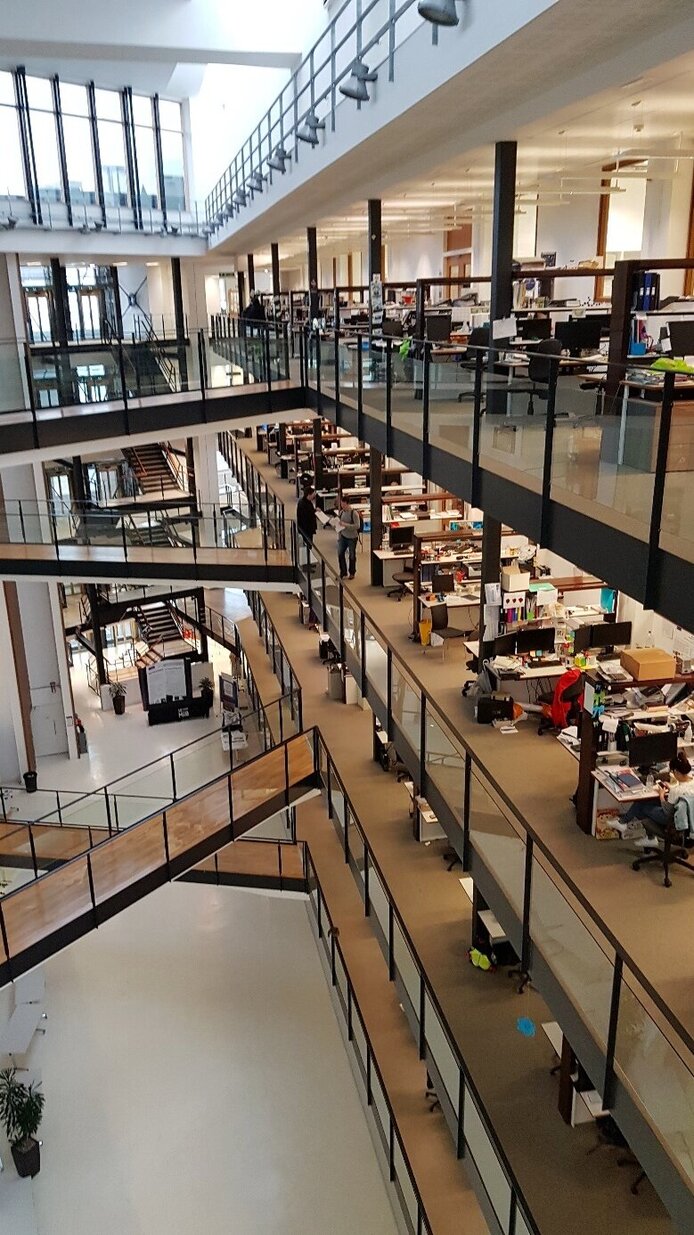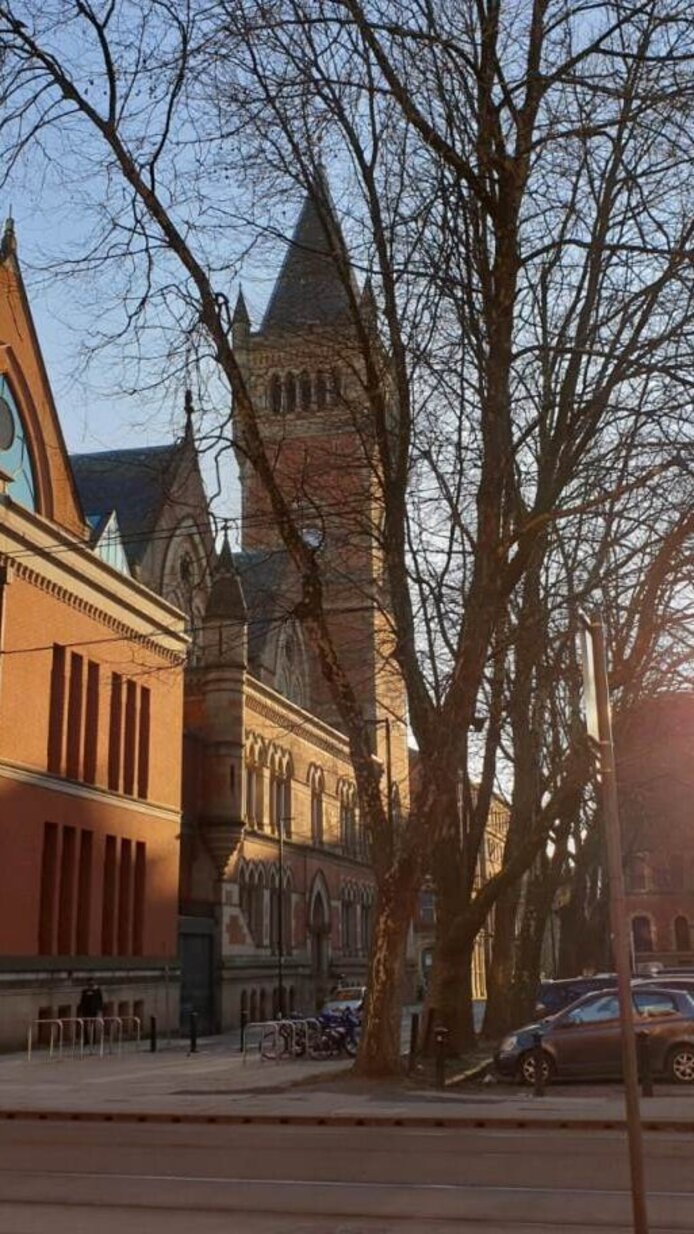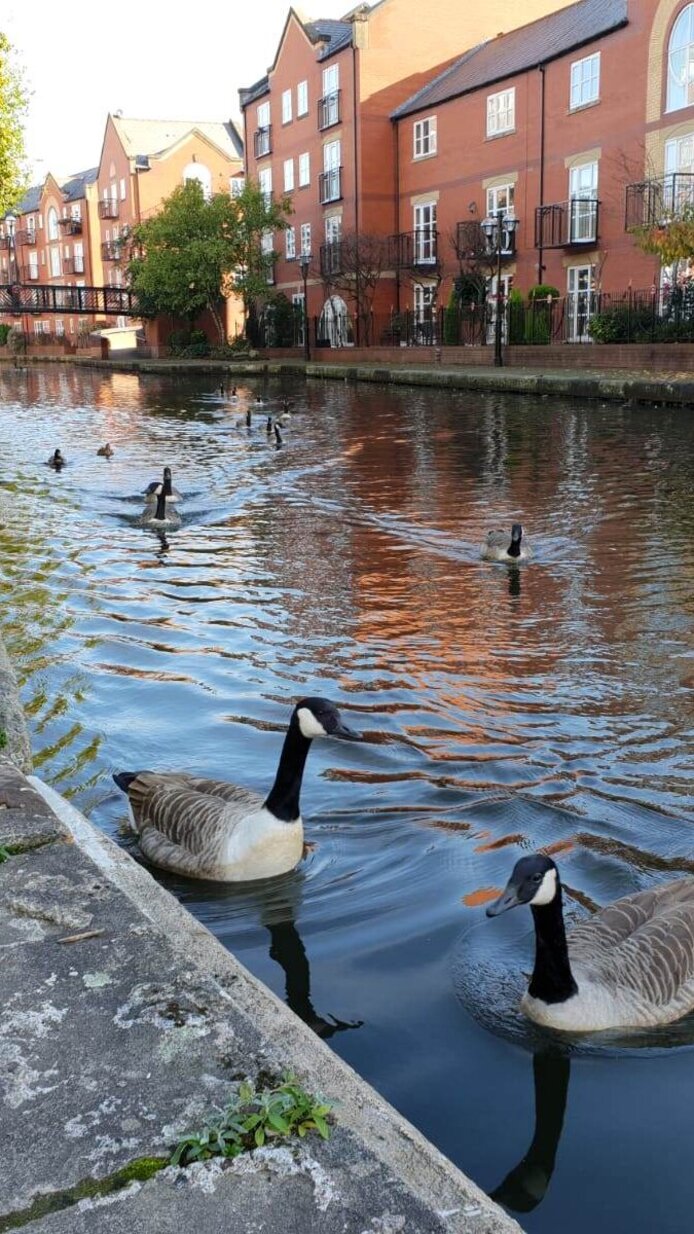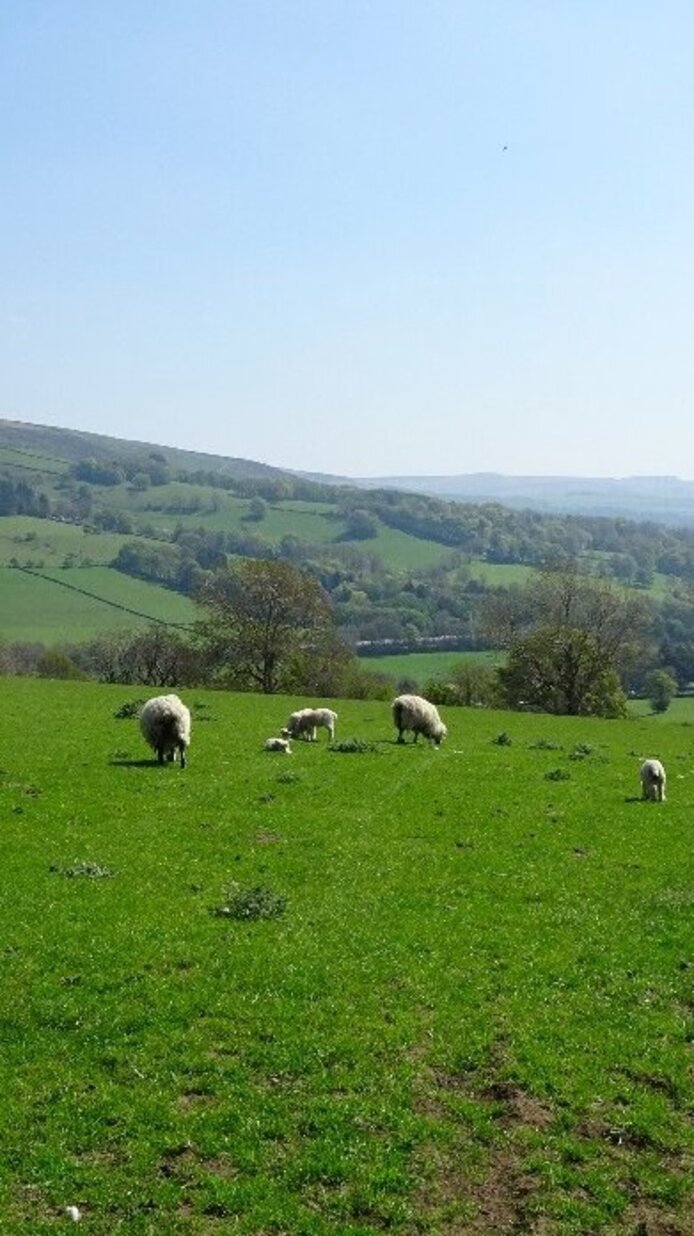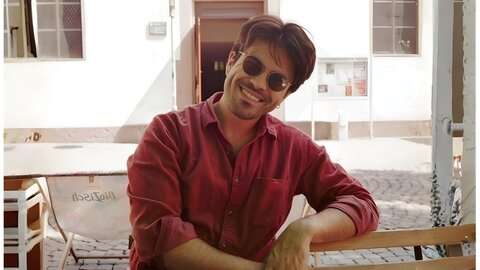Sachertorte in Manchester

To be quite honest, I have never taken a particular interest in soccer. If my Schrödinger Scholarship took me straight to Manchester, the English soccer capital, the choice was guided more by research considerations. Manchester, I thought, would be the ideal place to carry out my research project, which centres on the dynamics and activity of enzymes derived from wood-rotting fungi. And I was not disappointed. The broad spectrum of methods and the internationally renowned expertise available to me at the Manchester Institute of Biotechnology enabled me to obtain new insights into the molecular processes of these enzymes and to gain a much better understanding of the biological degradation of biomass.
An open research culture
In Manchester, my ideas fell on fertile ground. Nigel Scrutton, who accepted me into his research group, gave me free rein in defining my project. The subject area, which also relates to the field of renewable energy sources, was a good fit with the Institute's research priorities. This meant that I was able to do work in an extremely autonomous and self-determined manner in a creative research environment. The very flat hierarchy and the largely open interaction among the scientists also made it easy to start collaborations with other working groups.
More information
Manchester - between poverty and new beginnings
Given these fortuitous circumstances, it was not difficult for me to become a “Mancunian”, as the inhabitants of Manchester like to call themselves. The pleasant atmosphere of the city owes a great deal to the strong sense of community among the Mancunians, whom I generally found to be very good-humoured and courteous. The (worker) bee is a very fitting symbol of Manchester - an omnipresent reminder of the city’s industrial past. The dreary industrial cityscape so often associated with Manchester is, however, a thing of the past. In recent years and decades, many efforts have been made to renew and modernize everything. Old factory structures were given a new lease of life as residential buildings, shopping centres, pubs or museums. The spacious University of Manchester, which takes up a considerable part of the city, is an ensemble of venerable buildings and ultra-modern departments. That being said, Greater Manchester is still one of the poorest regions in England. Poverty and homelessness are as much a part of street life as the very large number of students and soccer fans.
Fast food nation?
A local adage says that Manchester’s got everything except a beach. Well, I beg to differ as far as food is concerned. The list of (healthy) foodstuffs that are not easy to find in England is quite long, because convenience food now takes pride of place in the supermarkets. In order to ensure my own well-being and foster cultural exchange, I therefore introduced my circle of friends and colleagues to some classics of Austrian cuisine, including, of course, Sachertorte, Tafelspitz and the famous Wiener Schnitzel, all of which met with widespread approval.
I, on the other hand, learned to appreciate the excellent beer produced by a small but world-famous Manchester brewery. While I have now completed my personal Brexit, which took me back to my alma mater, the University of Natural Resources and Applied Life Sciences in Vienna, I wouldn't have missed my time in the UK for the world. The Schrödinger Fellowship has made a significant contribution to my professional—and above all personal—development. What I have taken home with me from England, apart from a suitcase full of beer, are research ideas, collaboration projects and lasting friendships, which recently took me back for a holiday in Manchester.

